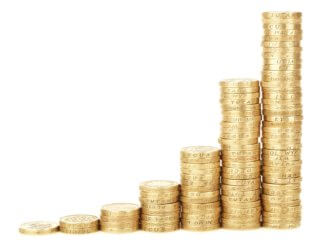
It is common knowledge that it is important to take care of your credit history and avoid defaults and late payments on your debt as part of your basic finances. Bad credit can have a profound impact on your ability to obtain loans for your financing of real estate or other assets, or for obtaining access to revolving lines of credit such as credit cards or personal loans. Understanding the importance of maintaining your credit and the negative impact that poor credit can have on your ability to borrow in the future is essential.
Obtaining Access to a Loan
The most critical way that bad credit can impact you is that it can limit you from access to lending of any kind. This often occurs in situations where an individual suffers from significantly poor credit and has recently defaulted on debt or has gone through a bankruptcy. More often than this extreme step, most lenders are more inclined to reduce the amount of debt that they are willing to offer an individual. For individuals with poor credit histories and scores many lenders will not lend above a certain threshold.
Impact of Bad Credit on the Interest Rate on Amounts Borrowed
If you have poor credit, it is likely that the interest rate that you pay on any loans that you do gain access to will be at a higher overall rate than what you would obtain with a better credit score. This is because you will be viewed as a greater risk for defaulting on the funds that are advanced to you. A lender is concerned with reducing the risk of non-payment, or default on the amounts that they lend out, in addition to making a profit on the loan fees and interest that are charged to you. The lower the credit score that you have, the greater the risk for default and the interest rate will generally accelerate to the highest legal rate that can be charged on amounts that you borrow as your credit score plunges. The adverse is true and the more you can improve your score, the lower your interest rate will be. As such, for borrowers, the first step is generally to improve your credit score to any extent possible by satisfying outstanding debt or reducing late payments, in addition to paying attention to your finances.
Ways to Gain Access to Better Interest Rates on your Borrowings with Poor Credit
There are several steps that you can take to improve the interest rate that you pay on the amounts you borrow, even when you have poor credit. One step that you can take is to lower the amount that you borrow or spread the debt over several agreements from different lenders to reduce the exposure of any specific lender. Another alternative is to have a guarantor, hopefully with a better credit history than yourself, guarantee your loan and reduce the risk to the lender. Another option is to pledge some assets in order to help to cover the loan upon a default. This last reason is the primary reason why the interest rate that is charged on an asset backed loan such as a mortgage or car loan is lower than a personal rate.
It is important to improve your finances in any way possible. Improving your credit score can reverberate through your life including in the form of lower interest rates and debt cost.



